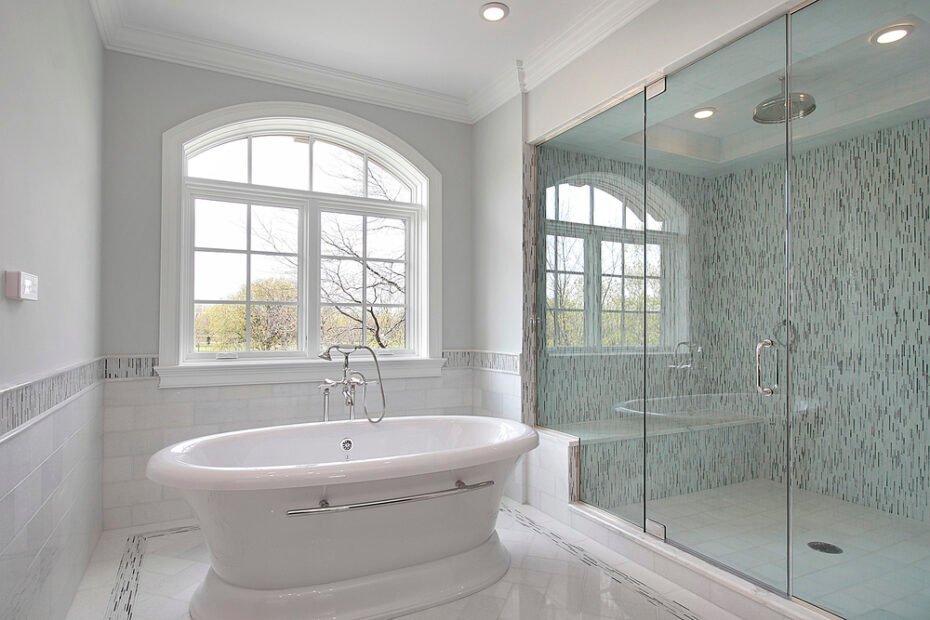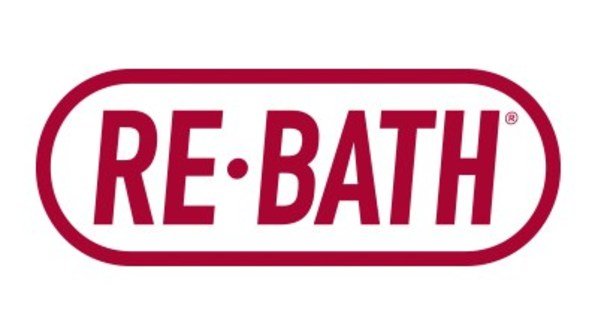A walk-in shower project costs between $1,000 and $15,000. Most homeowners pay around $6,700 in 2024, and this investment typically adds back 70% of its value to the home’s price.
Walk-in Shower Cost Calculator
Shower Type
Extra Features
Estimated Cost: $0.00
Here’s something your contractor might not mention: materials constitute 91.5% of the total cost, while labor makes up just 8.5%. Our nationwide analysis of walk-in shower prices has revealed hidden charges, pricing tactics, and money-saving techniques that most contractors keep quiet. Let me show you the real costs of your walk-in shower project and help you avoid unnecessary expenses.
Real Walk-In Shower Costs in 2025
Your walk-in shower’s size has a big effect on the final price. Small units (32″ x 32″) cost between $4,000 to $8,000. Medium-sized installations (48″ x 36″) range from $5,000 to $10,000. Large walk-in showers over 60″ x 36″ cost from $8,000 to $12,000.
National average costs
Walk-in shower installation costs across the country in 2025 range between $3,170 and $11,495. Simple prefabricated units start at $1,000, while custom installations can go up to $12,000. Material choices make a big difference in these costs. Prefabricated units are budget-friendly, and custom-tiled designs sit at the higher end of the price range.
Regional price differences
Location is a vital factor in walk-in shower costs. Here’s how prices vary by state:
| State | Average Cost |
|---|---|
| California | $3,500 |
| Florida | $2,200 |
| Maine | $3,800 |
| Montana | $2,300 |
| New York | $3,600 |
Labor rates are higher in urban areas compared to rural locations. Permit fees change by region and can range from a few dollars to several hundred dollars in states like Texas.
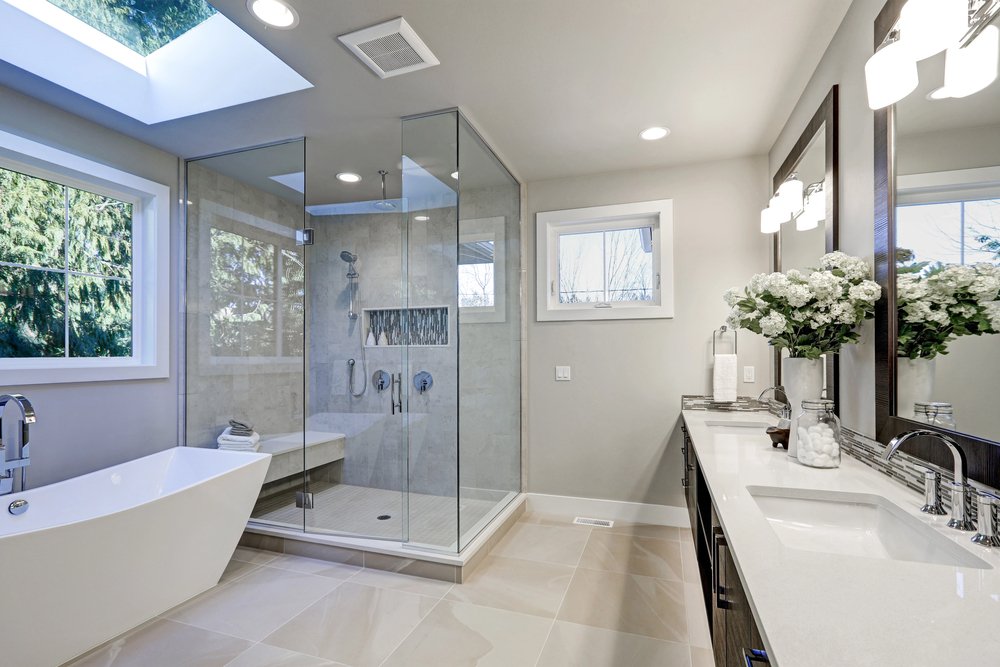
Seasonal price variations
Material availability and contractor demand shape seasonal pricing changes. Labor costs make up 40% to 60% of the final price. Homeowners should expect higher rates during peak renovation seasons when contractors are hard to find.
Material choice has a major effect on the overall cost:
- Acrylic inserts: $800 to $2,500
- Fiberglass options: $2,000 to $5,000
- Custom tile work: Varies based on material selection
Marble and granite are premium options that cost more for custom installations. Natural stone materials need specialized installation, which can push the project cost even higher.
Hidden Costs That Surprise Homeowners
Homeowners should think about several hidden expenses that can affect their budget before starting a walk-in shower project.
Permit fees and inspections
Building permits are mandatory for walk-in shower installations in most states. The average permit costs around $250, but fees can reach $500. We needed these permits to meet local building codes and safety standards.
The cost structure for permits varies based on location:
- Simple plumbing permits: $150
- Complex renovation permits: $750 to $1,500
- Multiple trade permits: $400 to $750
Demolition expenses
Much of your project budget will go toward demolition costs. The national average for bathroom demolition costs between $500 and $2,000. This expense covers:
- Removal of old shower: $50 to $100
- Construction debris disposal: $250
- Non-load bearing wall removal: $300 to $1,000
Your location determines labor rates for demolition work, which run between $40 to $100 per hour. A complete bathroom gutting takes between 5 and 15 man-hours.
Emergency repairs
Walk-in shower installations often reveal unexpected issues that lead to extra costs. Common emergency repairs include:
Water damage repairs range from $500 for leaky pipe fixes to $10,000 for floor joist repairs. Homes built before 1970 might contain asbestos, and professional removal costs between $5 to $20 per square foot.
Plumbing emergencies need immediate attention, and emergency plumbing services run 24/7. Hidden issues like mold, drainage problems, or faulty water pressure often appear during installation.
Experts suggest keeping extra funds beyond your original estimate to cover potential surprises. Finding water damage inside walls, dealing with mold, or replacing shower valves can drive up your final costs.
Understanding Contractor Pricing Tricks
Contractors use pricing strategies that directly affect your walk-in shower project costs. You can save thousands by knowing how these methods work and making smart decisions.
Material markup secrets
Contractors add a markup of 7.5% to 10% on materials to cover sourcing and logistics. Some charge markups up to 20% on materials. The markup percentage depends on:
| Material Type | Average Markup Range |
|---|---|
| Basic Materials | 7.5-10% |
| Premium Materials | 10-15% |
| Custom Orders | 15-20% |
Material quality substantially affects these markups. Simple ceramic tiles cost just $1-2 per square foot. Premium materials like glass, granite, and marble start at $5 per square foot. Higher-end materials come with steeper markups because they need special handling.
Labor cost padding
Labor expenses make up 40% to 60% of your total project budget. Most homeowners spend between $400 to $2,000 on labor alone, not counting materials. Each trade charges different hourly rates:
- Plumbers: $45-$200 per hour
- Tiling contractors: $30-$120 per hour
- Electricians: $50-$100 per hour
Labor markups rise in places with complex regulations and higher living costs, like New England and California. Contractors with higher overhead expenses need to charge more to stay profitable.
Contractors’ true profit margin averages between 5-9% of total revenue after overhead expenses. All the same, some try to boost profits through several methods:
- They inflate direct costs in cost-plus contracts
- They offer misleading discounts that hint at original overpricing
- They add unnecessary complexity to simple installations
You should always ask for detailed breakdowns of material and labor costs. Getting multiple contractor quotes helps too. Pay attention to what each estimate has – some might offer better materials or more detailed warranties.
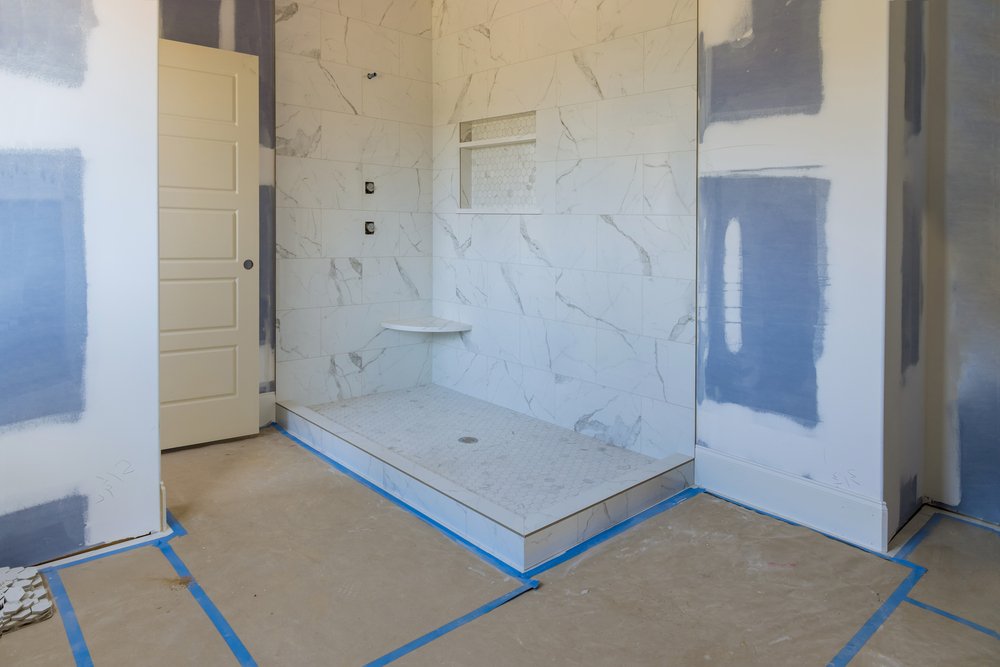
Smart Ways to Reduce Installation Costs
Smart planning and clever choices can help reduce walk-in shower installation costs. Let me share some proven ways to cut expenses without sacrificing quality.
DIY preparation work
You can save between $500 to $2,000 in labor costs by handling the demolition work yourself. We started by removing old fixtures and getting the space ready for new installation. Note that using proper safety equipment and careful demolition helps avoid costly mistakes.
Here’s what you need for DIY prep work:
- Remove old fixtures and tiles carefully
- Clean and prepare surfaces really well
- Save on disposal fees by getting rid of debris during community bulk pickup days
Material sourcing tips
Instead of expensive custom materials, you’ll find economical options that don’t compromise on quality. Acrylic panels look just like tiles but cost much less. PVC panels give you 100% waterproof protection without seams, making them both long-lasting and budget-friendly.
Your wall material choice can substantially affect your budget:
- Acrylic panels: $800-$2,500
- Prefabricated units: $300-$500
- Complete shower kits: $400-$2,000
These days, buying complete shower packages instead of individual pieces helps reduce overall costs. Stone resin gives you another budget-friendly choice that’s durable, resists stains, and looks like natural stone.
Timing your project
Contractor availability and material costs change with seasons, and knowing this helps you get better prices. Winter months tend to offer the best rates. Here’s a breakdown of the best times for installation:
| Season | Cost Impact | Contractor Availability |
|---|---|---|
| Winter | Lowest rates | Highest |
| Spring | Moderate rates | Good |
| Summer | Peak rates | Limited |
| Fall | Moderate rates | Good |
You’ll find that winter installations can save you money since contractors often lower their bids to keep steady work. You can also save big by ordering materials during post-holiday sales.
Here’s how to maximize your savings:
- Schedule installation during off-peak seasons
- Book contractors 2-3 months in advance
- Purchase materials during end-of-year clearances
Standard sizes of acrylic panels and fiberglass units are usually ready to go at home improvement stores. Custom orders might take 4-12 weeks, so plan ahead.
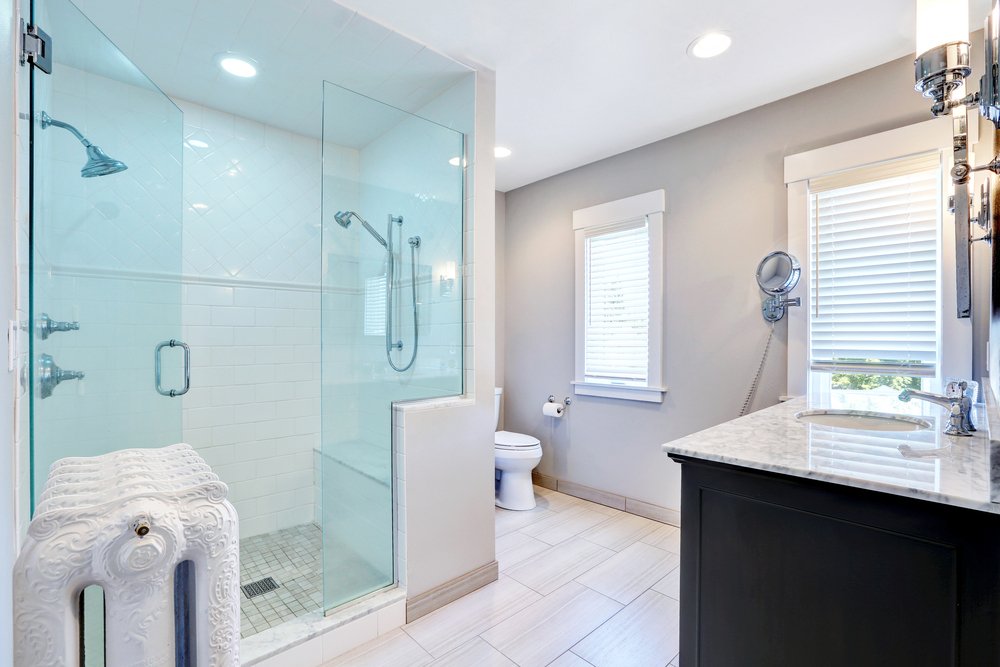
Comparing Quotes Like a Pro
You need multiple quotes for your walk-in shower project to get fair pricing and quality work. We recommend getting three to four detailed estimates from different contractors. Whether you go with a national brand like Bathfitter or Rebath, or a local contractor, you need to get several estimates.
Red flags in contractor bids
Watch out for these warning signs when reviewing contractor bids:
| Red Flag | Why It Matters |
|---|---|
| Very low bids | Shows possible lack of proper insurance or desperate contractors |
| Large upfront payments | Should not exceed 10-25% of total project cost |
| Vague contract terms | Must include detailed scope, timeline, and payment schedule |
| No physical address | P.O. Box-only contractors raise concerns |
| Lack of transparency | Pricing should be itemized and clear |
Good contractors provide clear, detailed quotes that show material costs, start dates, finish dates, and hourly rates. You should ask for revised quotes if bids don’t include proper itemization before signing any contracts.
Questions to ask contractors
Here are key questions to ask before picking a contractor for your walk-in shower installation:
- Experience and Portfolio
- Can you show examples of previous walk-in shower installations?
- How many similar projects have you completed?
- May I contact your recent clients for references?
- Project Management
- What is your expected timeline for completion?
- Will you use subcontractors for any part of the installation?
- How do you handle unexpected issues during installation?
- Credentials and Protection
- Can you show proof of current contractor’s license?
- Do you carry liability insurance and workers’ compensation?
- What warranties do you offer on materials and labor?
Reliable contractors are happy to provide detailed answers and documentation. They should explain their communication methods, project updates, and inspection scheduling processes clearly.
Professional contractors must pull all needed permits and schedule required inspections. They should also explain their payment structure, including:
- Down payment requirements
- Progress payment schedules
- Final payment terms
Pay special attention to the contractor’s insurance coverage, especially liability protection and workman’s compensation insurance. These protections keep homeowners safe from potential injuries or damages during installation.
Long-term Cost Considerations
Like walk in tubs, walk-in showers cost more than just the original installation price. Homeowners should learn about these long-term costs to make smart decisions about their bathroom investments.
Maintenance expenses
Your walk-in shower needs regular upkeep to work properly and avoid getting pricey repairs. Glass enclosures need frequent cleaning to stop mildew and hard water buildup. We focused on these main maintenance costs:
| Maintenance Task | Average Cost |
|---|---|
| Grout Sealing | $50-$150 |
| Calcium Removal | $50-$150 [274] |
| Rust Stain Treatment | $50-$150 [274] |
| Simple Repairs | $100-$700 |
You can reduce maintenance needs by choosing mildew-resistant materials like specialized grout and tiles. Professional cleaners charge $100 to $300 per visit, based on your shower’s size and condition.
Energy costs
Water heating makes up 10-20% of a typical home’s energy bill. Just one minute of shower time uses more energy than running lights all day in a three-person home. Here’s a breakdown of shower costs:
National averages show:
- Water cost: $1.50 per 1,000 gallons
- Electricity rate: 12 cents per kilowatt-hour
- Daily shower cost: 25-51 cents per household
A household taking 8-minute showers spends about $195 yearly on hot water. Adding just four minutes to shower time pushes yearly costs up to $270.
Water and energy use changes a lot with different flow rates:
- Standard showerheads: 2.5 gallons per minute
- Older models: Up to 5.5 gallons per minute
- High-efficiency options: 1.5 gallons per minute
A low-flow showerhead can cut yearly costs from $480 to $130. Turning down your water heater by 10 degrees saves 3-5% on monthly energy costs.
Future repairs
Walk-in showers develop common problems as they age. Here’s what you might need to budget for:
| Repair Type | Cost Range |
|---|---|
| Shower Head Issues | $50-$150 [274] |
| Faucet Problems | $50-$200 |
| Drain Pipe Repairs | $150-$400 |
| Door Repairs | $150-$500 |
| Pipe Repairs | $200-$600 |
Without doubt, more serious problems can develop over time. Water damage behind walls costs $200-$1,000 to fix. Black mold removal ranges from $250-$1,000. Quick action on these issues prevents bigger damage.
Service rates for emergencies vary by location and timing:
- Plumbers: $45-$200 per hour
- Tiling contractors: $30-$120 per hour
- Glass professionals: $50-$100 per hour
Quality materials and professional installation help minimize future repair needs. High-end materials and proper waterproofing protect against water damage and last longer. Regular maintenance and quality components cost less than emergency repairs in the long run.
Conclusion
Walk-in shower projects are major home investments that just need smart planning. Most projects cost between $1,000 and $15,000. You can get the best value for your money by making smart choices about materials, timing, and picking the right contractor.
Homeowners make better choices when they know about hidden fees and how contractors price their work. The right materials, perfect timing for installation, and a properly vetted contractor can save you money without cutting corners on quality.
The original installation cost is just the beginning of your investment. Your budget should include future maintenance, energy costs, and possible repairs. Quality materials and professional installation might cost more now but will save you money over time with fewer emergency fixes.
Homeowners who use these tips usually save 20-30% on their shower projects. The investment stays valuable for years to come. Research thoroughly, compare different quotes, and plan for both current and future expenses before you begin.

